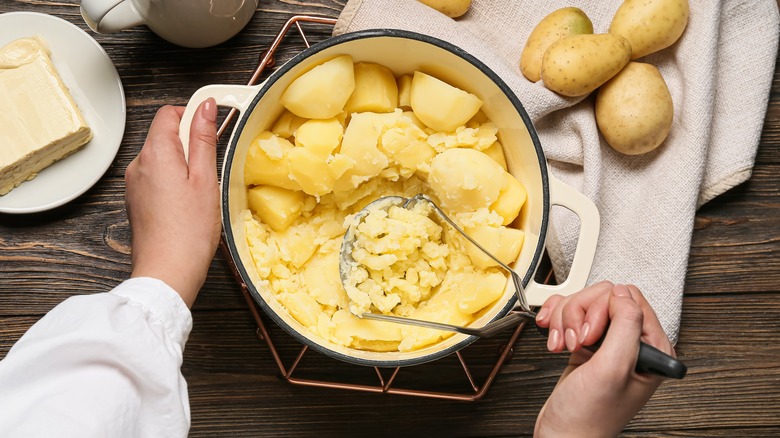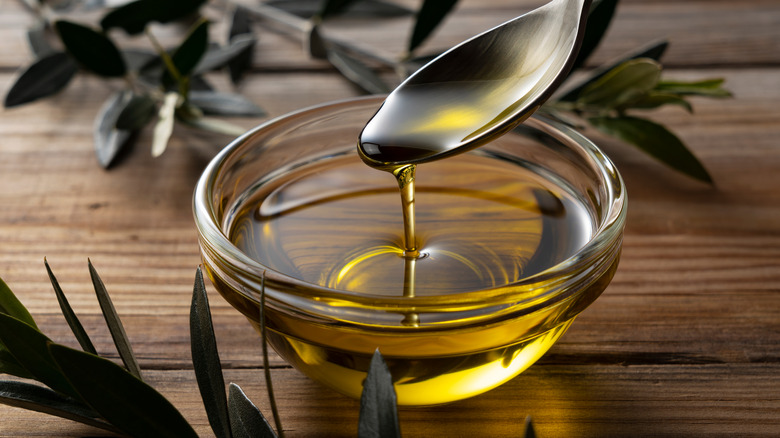To Bolster The Flavor In Mashed Potatoes, Try A Little Olive Oil
The glorious potato can take on many roles on your dinner table, whether it's as au gratin in a cheesy casserole or serving as the crispy French fried sidekick to a burger. If there's one dish that always steals the spotlight, though, it's a bowl of classic mashed potatoes. What would our family feasts be without it?
There are plenty of ways to go about making this beloved not-so-side dish. You can use an array of potato varieties — from Yukon gold to russet to the powdered instant version — as well as different mashing and cooking methods. Whether you bake your dish in the oven, simmer it on your stovetop, or cook it in an instant pot, the ideal end result is always a rich and creamy serving of pillowy potatoes worth going back to for seconds.
Whichever way you decide to whip up this dish, the key to achieving that fluffy, decadent consistency is always the addition of some kind of fat. You're probably familiar with recipes that call for milk, cream, and/or lots of butter. If you're looking for a dairy-free option or would simply like to switch up your recipe, olive oil is an excellent alternative. Because it is lower in saturated fat than butter and full of antioxidants, the swap also makes for a healthier dish without sacrificing that indulgent texture.
Olive oil complements the flavor of the potatoes
In Skordalia, the Greek version of mashed potatoes calls for olive oil, combined with garlic and lemon juice for a smooth, tangy finish. Olive oil is also the secret ingredient in actor-turned-cookbook author Stanley Tucci's unique version, along with egg yolks — two additions that help give his potatoes a luxurious creaminess without the milk. While his recipe still includes butter, olive oil can serve as a substitute for it, adding just the right amount of richness to both the texture and taste of the final product.
Thanks to olive oil's milder profile, it takes a back seat to the earthy starchiness of the potato, bolstering its natural flavor without overtaking it. Because most quality olive oils — including extra virgin varieties — have a distinctly earthy taste, the ingredient acts as a wonderful complement.
The olive oil should be slowly added during the mashing and mixing process — at the same point that you would add other fats. This will ensure that the oil is well incorporated to achieve the desired creamy consistency. If you're using a traditional recipe and substituting the butter, we suggest using about a quarter less olive oil per measurement of butter to avoid an overly oily result. Of course, you can keep on pouring to your preference. In the end, you should have a fluffy and flavorful dish that gives the potatoes all the attention they deserve.

